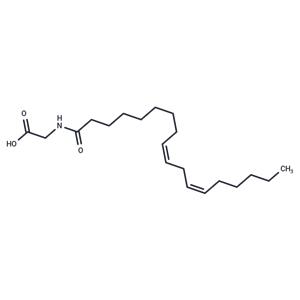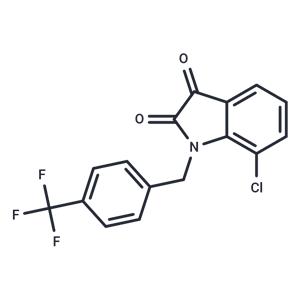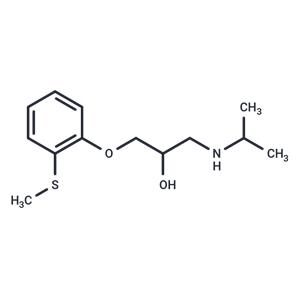
Zibotentan NEW
| Price | $36 | $52 | $84 |
| Package | 1mg | 2mg | 5mg |
| Min. Order: | |
| Supply Ability: | 10g |
| Update Time: | 2024-11-19 |
Product Details
| Product Name: Zibotentan | CAS No.: 186497-07-4 |
| Purity: 99.34% | Supply Ability: 10g |
| Release date: 2024/11/19 |
Product Introduction
Bioactivity
| Name | Zibotentan |
| Description | Zibotentan (ZD4054) (ZD4054) is a specific Endothelin (ET)A antagonist with IC50 of 21 nM, exhibiting no activity at ETB. Phase 3. |
| Cell Research | Cells are serum starved by incubation for 24 hours in serum-free DMEM before exposed to Zibotentan for 48 hours. After the treatment, cells are lysed and the supernatant is recovered and assayed for histone-associated DNA fragments, at 405 nm by the use of a microplate reader. For detection of early apoptotic events, floating and adherent cells are collected. Cells are double stained with FITC-conjugated Annexin V and propidium iodide using the Vybrant Apoptosis Kit and are immediately analyzed by cytofluorometric analysis.(Only for Reference) |
| Kinase Assay | Receptor-binding assays: The inhibition by Zibotentan (varying concentrations) of 125iodine-ET-1 binding to cloned human ETA is assessed using standard radioligand-binding techniques. Human recombinant ETA is expressed in mouse erythroleukaemic cells, and cell membranes prepared for competitive binding studies using 125iodine-ET-1 as the radioligand. Incubations are carried out in triplicate in the presence of Zibotentan, 100 pM to 100 μM in half-log increments, and inhibition of ET-1 binding is expressed as the geometric mean pIC50 value (concentration to inhibit 50% of binding) with a 95% confidence interval (CI). The affinity of Zibotentan for cloned human ETA is also assessed using the equation of Cheng and Prusoff to determine the equilibrium dissociation constant (Ki) in a further receptor-binding screen utilizing a greater number of concentration-response curves determined in three separate studies. |
| In vitro | As Zibotentan specifically inhibits ETA-mediated antiapoptotic effects, but not ETB-mediated proapoptotic effects in human and rat smooth muscle cells, Zibotentan binds to endothelin A receptor (ETA) with high affinity with Ki of 13 nM, and has no affinity for endothelin B receptor (ETB) with IC50 of >10 μM. [1] Zibotentan treatment at 1 μM inhibits ET-1 induced mitogenic activity in ovarian carcinoma cell lines HEY and OVCA 433 secreting ET-1 and expressing ETA and ETB mRNA. [2] ZD4054 (1 μM) inhibits ET-1 induced EGFR transactivation in HEY and OVCA 433 cells. Zibotentan (1 μM) reverts ET-1 mediated epithelial-mesenchymal transition (EMT), by enhancing E-cadherin expression and promoter activity, and inhibiting vascular endothelial growth factor (VEGF) secretion and invasiveness in HEY and OVCA 433 cells. [3] Zibotentan also potently inhibits the basal and ET-1 induced cell proliferation in SKOV-3 and A-2780 cells, associated with the inhibition of AKT and p42/44MAPK phosphorylation, and with increased apoptosis through the inhibition of bcl-2 and activation of caspase-3 and poly(ADP-ribose) polymerase proteins. [4] |
| In vivo | Administration of Zibotentan at 10 mg/kg/day for 21 days potently inhibits the growth of HEY ovarian carcinoma xenografts in mice by 69% with no associated toxicity, which is in association with the blocking of cell proliferation evaluated by 37% inhibition of the Ki-67 expression, and the 62% inhibition of tumor-induced vascularization. Consistently, Zibotentan treatment significantly inhibits the expression of matrix metalloproteinase-2 (MMP-2) and VEGF, as well as the activation of p42/44 MAPK and EGFR, and potently enhances the expression of E-cadherin. [3] |
| Storage | Powder: -20°C for 3 years | In solvent: -80°C for 1 year | Shipping with blue ice. |
| Solubility Information | DMSO : 23 mg/mL (54.2 mM) Ethanol : < 1 mg/mL (insoluble or slightly soluble) H2O : < 1 mg/mL (insoluble or slightly soluble) |
| Keywords | 44MAPK | ETA | Inhibitor | bcl-2 | ZD-4054 | Endothelin Receptor | ZD 4054 | CRPC | Zibotentan | inhibit | p42 | Apoptosis | anticancer | caspase-3 |
| Inhibitors Related | Stavudine | 5-Fluorouracil | Acetylcysteine | Kaempferol | Myricetin | Sodium 4-phenylbutyrate | L-Ascorbic acid | Dextran sulfate sodium salt (MW 4500-5500) | Metronidazole | Sorafenib | Tributyrin | Lidocaine hydrochloride |
| Related Compound Libraries | Highly Selective Inhibitor Library | Bioactive Compound Library | Pain-Related Compound Library | Membrane Protein-targeted Compound Library | Anti-Cancer Clinical Compound Library | Drug Repurposing Compound Library | Bioactive Compounds Library Max | GPCR Compound Library | Anti-Cancer Active Compound Library | Anti-Cancer Drug Library |
Company Profile Introduction
Target Molecule Corp. (TargetMol) is a global high-tech enterprise, headquartered in Boston, MA, specializing in chemical and biological research product and service to meet the research needs of global customers.
TargetMol has evolved into one of the biggest global compound library and small molecule suppliers and a customer based on 40+ countries. TargetMol offers over 80 types of compound libraries and a wide range of high-quality research chemicals including inhibitors, activator, natural compounds, peptides, inhibitory antibodies, and novel life-science kits, for laboratory and scientific use. Besides, virtual screening service is also available for customers who would like to conduct the computer-aided drug discovery.
You may like
Recommended supplier
| Product name | Price | Suppliers | Update time | |
|---|---|---|---|---|
| $/ |
Anhui Ruihan Technology Co., Ltd
|
2023-08-21 |
- Since: 2011-01-07
- Address: 36 Washington Street, Wellesley Hills
INQUIRY







 United States
United States